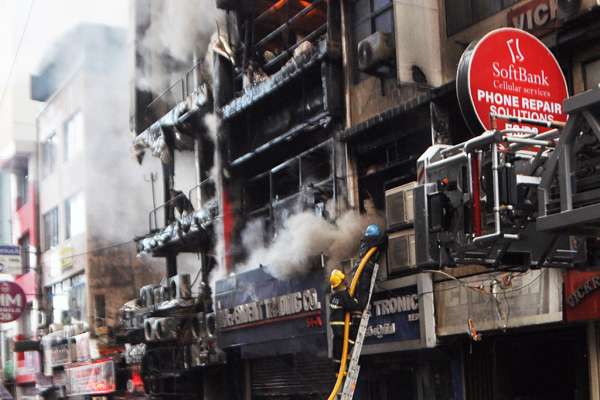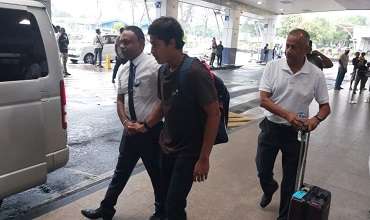WASHINGTON (Reuters) - The U.S. Transportation Security Administration (TSA) said on Monday it will require six Middle Eastern carriers to undergo enhanced cargo screening as part of an effort to raise global aviation security.

FILE PHOTO: An EgyptAir maintenance and engineering hangar is pictured through the window of a plane in Cairo International Airport, Egypt December 16, 2017. REUTERS/Amr Abdallah Dalsh/File Photo
The emergency amendment covers carriers in five countries flying out of seven airports and focuses “on last points of departure locations where the threat is greatest,” TSA said in a statement.
It comes as the Trump administration has been working to increase international airport security.
The carriers and airports are: Egypt Air operating out of Cairo International Airport, Royal Jordanian RJAL.AM operating out of Queen Alia International Airport, Saudia operating out of King Abdul-Aziz International Airport and King Khalid International Airport, Qatar Airways operating out of Doha International Airport and Emirates and Etihad operating out of Dubai International Airport and Abu Dhabi International Airport.
All cargo originating from those airports will have to be screened and secured under Air Cargo Advance Screening protocols. The TSA said most of the requirements were already being voluntarily applied by airlines around the world.
Carriers must submit advance air cargo data to U.S. authorities. The program uses U.S. Department of Homeland Security “threat information and other data to employ a risk-based approach to improve air cargo security through targeted vetting.”
You can share this post!
Content

Former President Mahinda Rajapaksa is due to vacate his official residence at Wijerama Mawatha, Colombo this morning, a Sri Lanka Podujana Peramuna (SLPP) source said.

President Anura Kumara Dissanayake today warned that Ceylon Electricity Board Employees would have to make a choice in the next two months.






Leave Comments